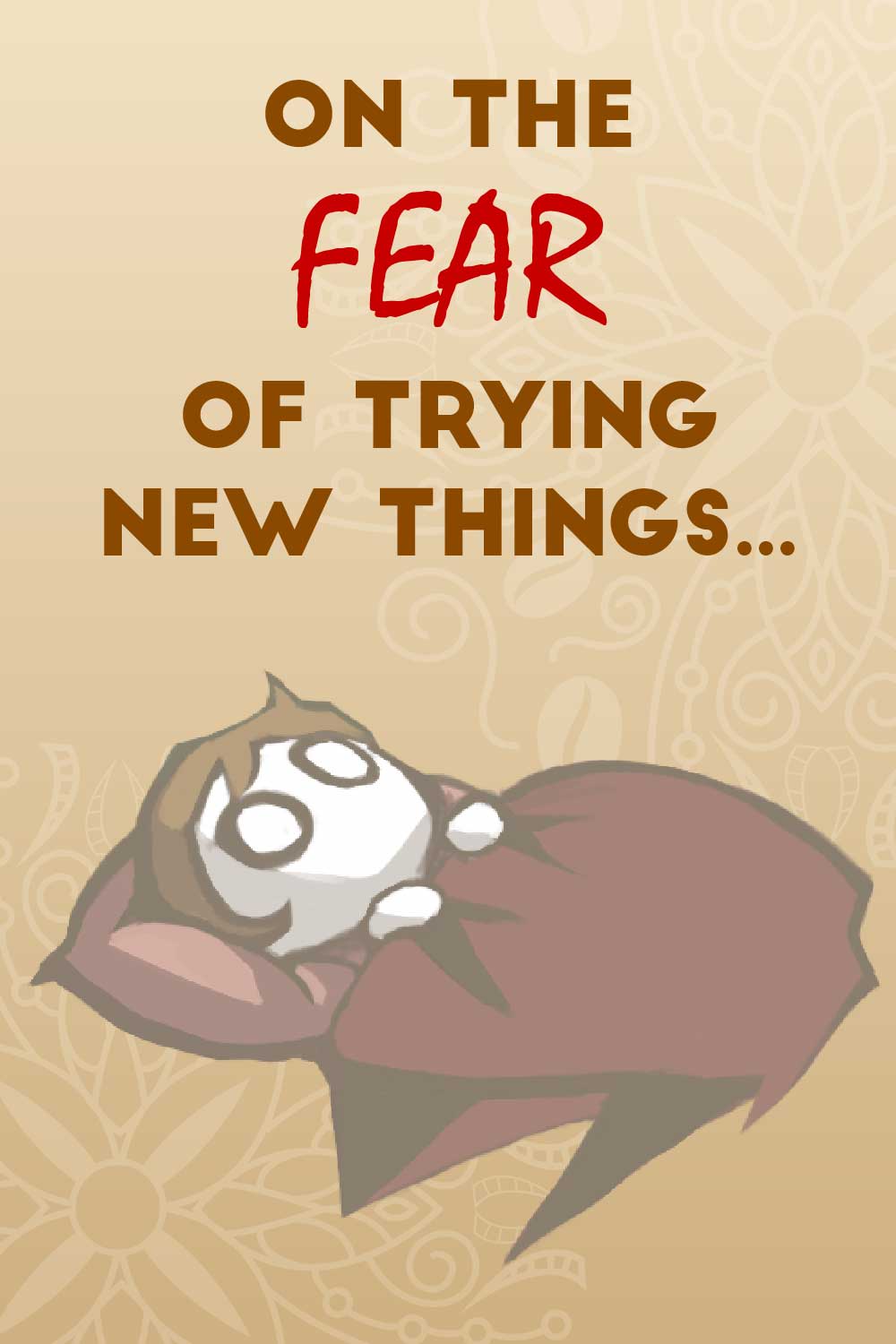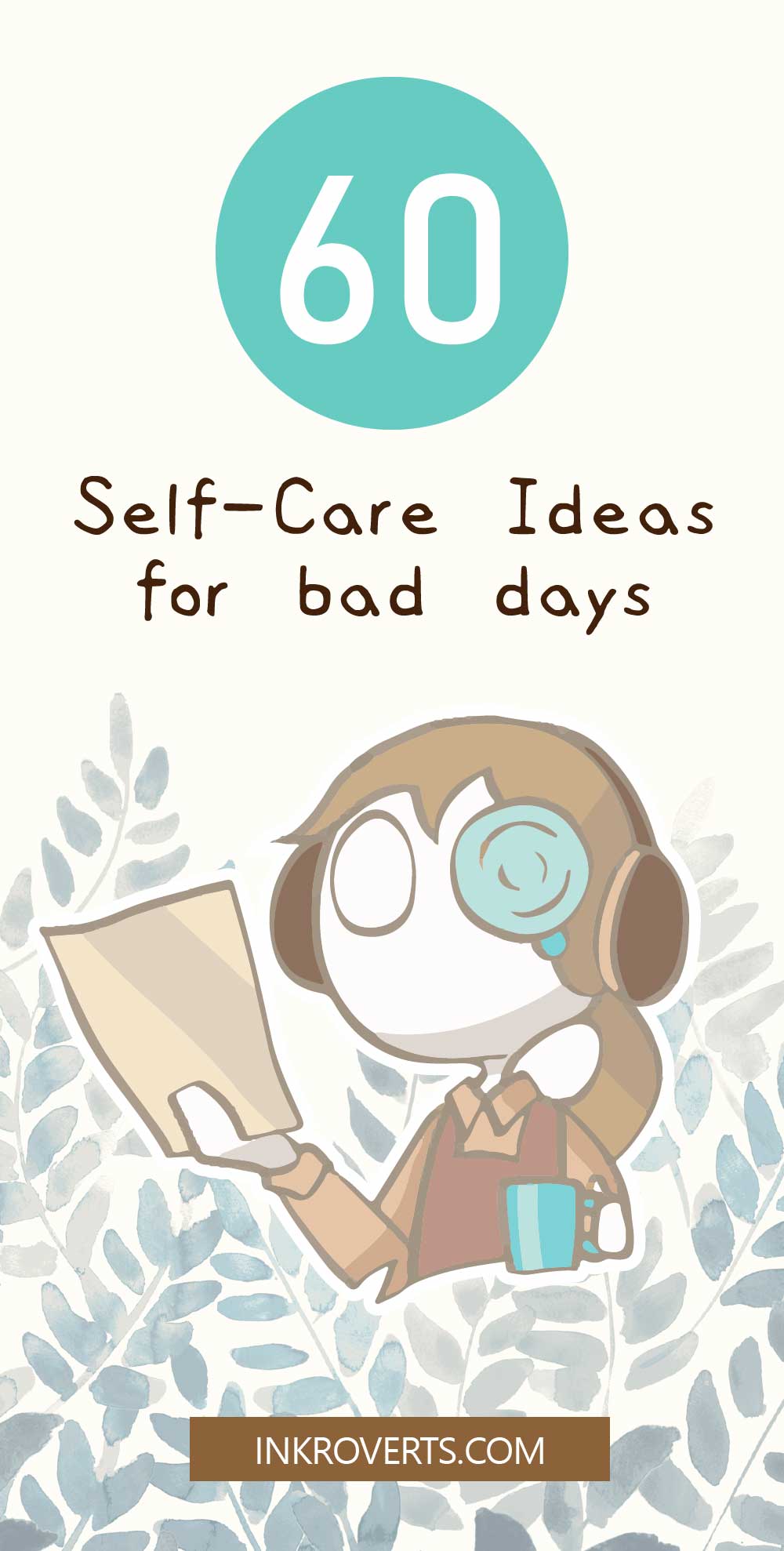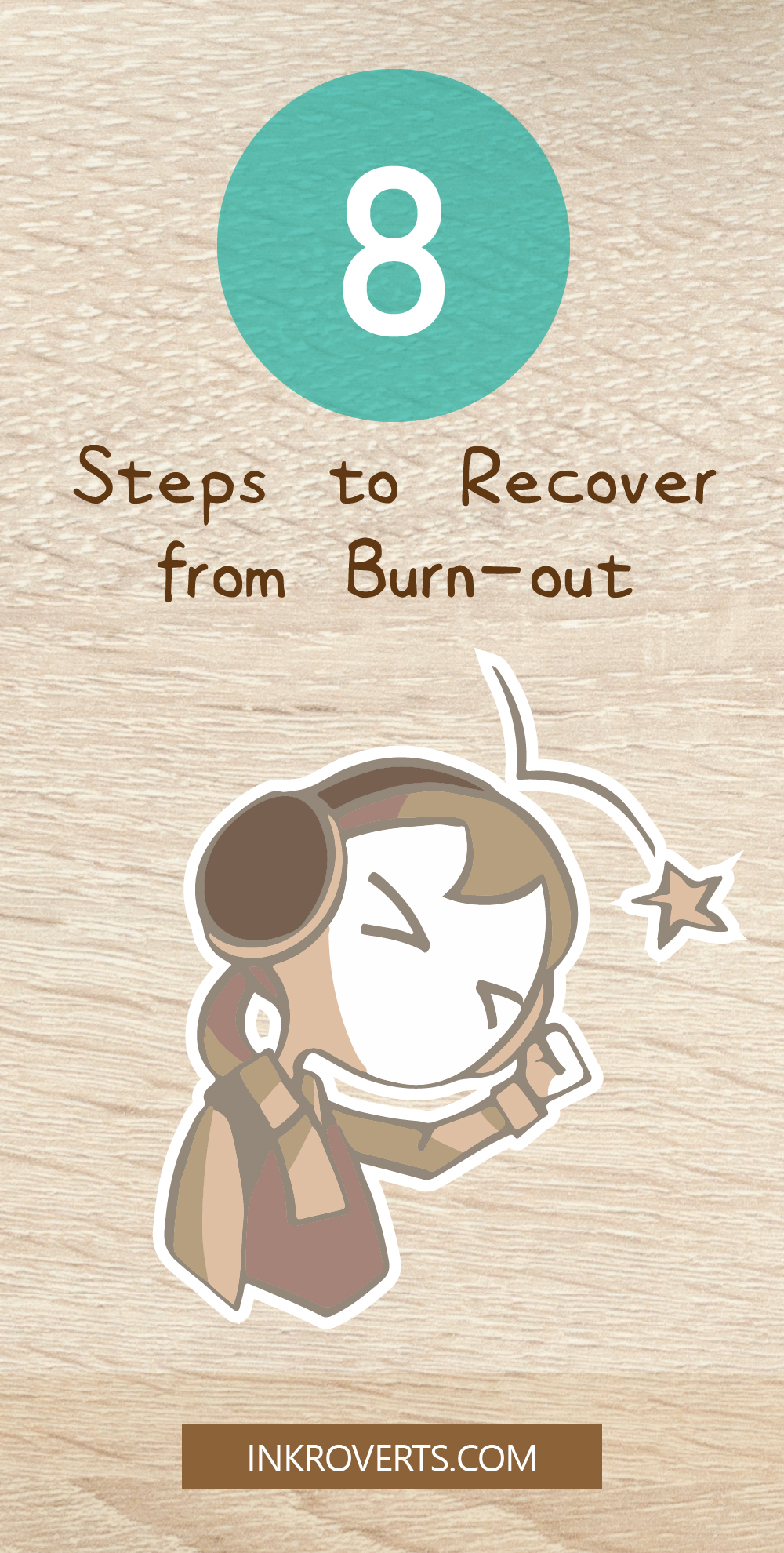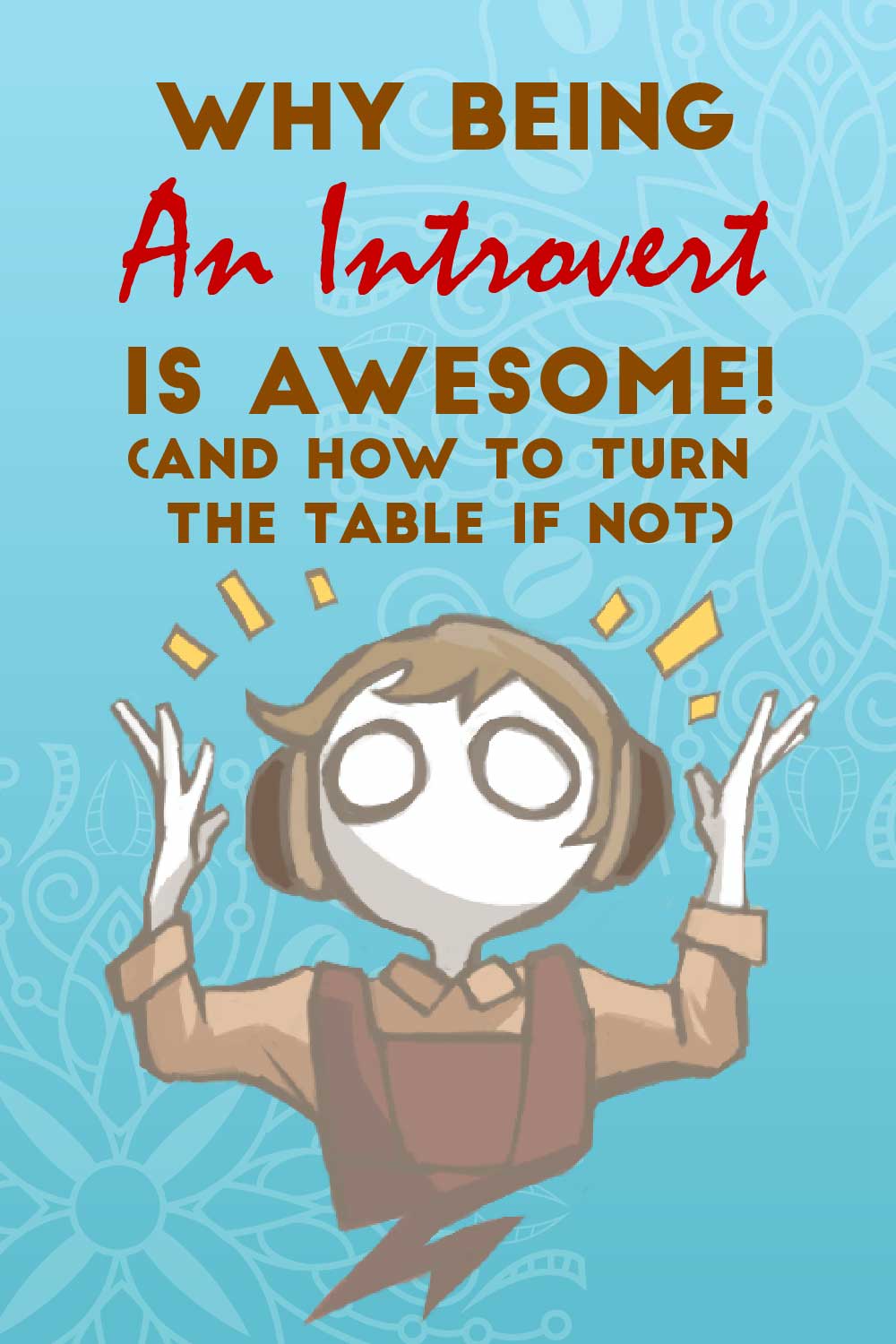
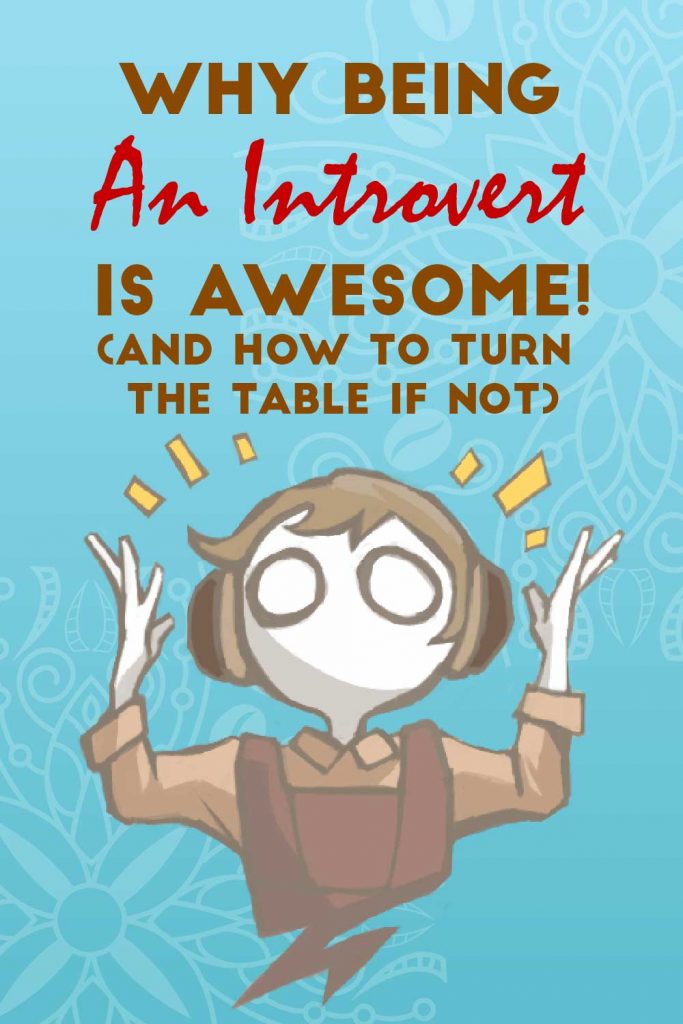
Susan Cain had said in her book Quiet: The Power of Introverts in a World that Can’t Stop Talking,
“don’t think of introversion as something that needs to be cured”.
In fact, being an introvert can get you numerous advantages in life (of which we are going to put the list below!).
On the other hand, there’re still voices saying “introverts are shy”, “introverts don’t have social skills”, and “introverts are shut-ins”.
I thought about where these rumors come from, for a long time. Finally, I concluded that these whispers have a basis, but it’s because some introverts don’t know how to put their “introverted shortcomings” into their advantage.
So here’s the list of what I’m about to tell you!
| Your Advantage! | Traps to Avoid! | |
| 1. | You Think Before You Speak | Endless Self-editing |
| 2. | You Stay Shortly in Social Gatherings | Passive Aggressiveness |
| 3. | You Are More Disciplined | Dopamine Addiction |
| 4. | You Like Solitude More | Over-stimulation |

Table of Contents
#1 You Think Before You Speak
As an introvert, you will constantly find yourself being one the least (or one of the least) talkative person in the group.
When it’s your turn to speak, you will think for a few seconds before opening your mouth. These few seconds feel especially silent and thoughtful.
As a result, you are likely to have a reputation of saying impact-ful , meaningful things. Well- because you don’t speak otherwise!
It’s a big advantage of being an introvert. Because when you do speak, people will think you have something important to say (even when they don’t tell you), and listen carefully.
It’s A Trap: Endless Self-editing
However, many introverts fall into the trap of endless self-editing. That means they will think over and over- about what they want to say. But still believe they haven’t thought it through!
At the end of the conversation, they lose their chance of speaking at all. Which is not a good thing, even for introverts.
To avoid endless self-editing, we’ll need to practice translating our thoughts into actual words. Which isn’t easy! But many successful people, who are introverts themselves, are able to do it.
Start from shorter sentences- which do not make you sound stupid, but instead are more impact-ful and firmer.
For example, you’re talking about a book with your friends.
“I think it’s pretty cool. There’s a lot of fantasy elements in it, and the characters are great, and the meaning is cool- not gonna spoil it…“
VS
“It’s a great book. You should read it.“
Which one do you think is more confident? A lot of people will say the latter. Because there’s no indecisive words, and the sentence is clear as day.
Another method to practice is writing- which is what I do often.
You write down your thoughts in words. The process may feel effortless, but you have already improved yourself in editing your thoughts.
After knowing about forming better words, you will need less time to self-edit during conversation.

#2 You Stay Shortly in Social Gatherings
One of the most well-known traits of introverts is that they are not interested in small talks.
And technically, it’s not just small talks.
When you find a topic you’re not interested in, gossip about someone you don’t even know, or something not very useful to you, you will get tired of it very easily. These happen especially in social gatherings.
Fortunately, it’s can turn out to be a good thing.
Staying shortly in social gatherings- give you more time to focus on something you actually have passion for.
You can schedule your time to be productive, read and write, and generally upgrading yourself. And save your social time mostly for deep and meaningful conversations.
It’s A Trap: Passive Aggressiveness
However, many introverts feel guilty about leaving social gatherings early, or not be as active as their friends in small talks.
They force themselves to appear interested, but privately they are not. This mental conflict carries on for the rest of the night. And as a result, they become more and more irritated.
But no! They can’t show they’re irritated! It’s not very polite, is it?
Then what happens is a series of passive-aggressiveness. They grow silent. They begin to think other people are shallow and dumb. Their faces are pulled into a resting-b****-face.
But they still don’t dare to leave.
It is very important for introverts to recognize these mental signs of themselves. And it is perfectly fine to give yourself space when you need it.

#3 You Are More Disciplined
One of the benefits of introverts’ constant thinking- is that the brain is used to reflection.
Other than thinking about philosophical questions and imagination, you also like to reflect on yourself. How should I do better? What am I good at? What can I do to make an impact in this world?
These questions are super important. With the questions answered, it means you have found your purpose in life. And you will stop at nothing to strive for it.
Moreover, because you’re passionately working and reflecting, you’re also more perceptible of your own mistakes and shortcomings. Therefore, you can improve yourself accordingly.
It’s A Trap: Dopamine Addiction
Dopamine addiction is the opposite of being disciplined.
Some introverts don’t like being face-to-face with other people. Instead, they prefer to interact via social media. But scrolling on and on is a trap intentionally designed by app designers to get you addicted.
(The same goes for non-introverts who like to browse social media.)
After a while, they wonder why they don’t feel better looking at social media. And their immediate solution is: to keep scrolling!
Scientists found out that dopamine- the happy hormone- comes not exactly at the moment of getting reward, but the waiting right before getting the reward.
Therefore, when clicking into a page, you will already have a hit of dopamine. Even when the actual content is underwhelming, you will be addicted to continue scrolling and clicking.

#4 You Like Solitude More
Solitude is different from loneliness. For loneliness, anyone can feel lonely, regardless of how many friends you have.
There’s a misconception about how the feeling of loneliness come.
Some people think the more they go out and social, the less likely they’re going to feel lonely. But that’s not how it works.
Loneliness stems from the belief of “other people are doing things without me- deliberately” or “I’m not important to the others”.
Even when one goes out to meet new people every day. If they hold these beliefs, they will still feel lonely.
As an introvert, you find comfort in solitude. And because you’re so used to staying cozy by yourself, you are less likely to be a victim of loneliness.
It’s A Trap: Over-stimulation
Some introverts don’t recognize their introvert traits. They believe it’s their fault that they get tired easily during social interactions.
They also might have the same misconception about loneliness mentioned above.
As a result, they will look for “ways” to numb their loneliness. Or stay in social interactions even when they’re not interested.
What comes after is over-stimulation, or sensory overload (as psychologists would say). Introverts who are over-stimulated become tired and dizzy. This is your body’s message of telling you to wind down and get some rest.
If ignored, the symptoms can keep on bothering you for days. The same consequence goes for extroverts who haven’t socialized for long.

What are other introvert advantages you can think of?
There are many good things about being an introvert. I can’t possibly make a “complete” list! But just like tipping a balance, an advantage can be a hindrance when used improperly. So it’s up to you to take care of yourself!
In your experience, what do you think is the most important advantage an introvert can have? Comment below to tell all of us!
Meanwhile, if you’re an artist, you can take a look at the interpretation of how 8 types of introverts do art! (According to Myers-Brigg Personality Archetypes)
If you’re interested to get updated on INKroverts’ newest article and artwork, make sure to subscribe to our weekly newsletter below!
